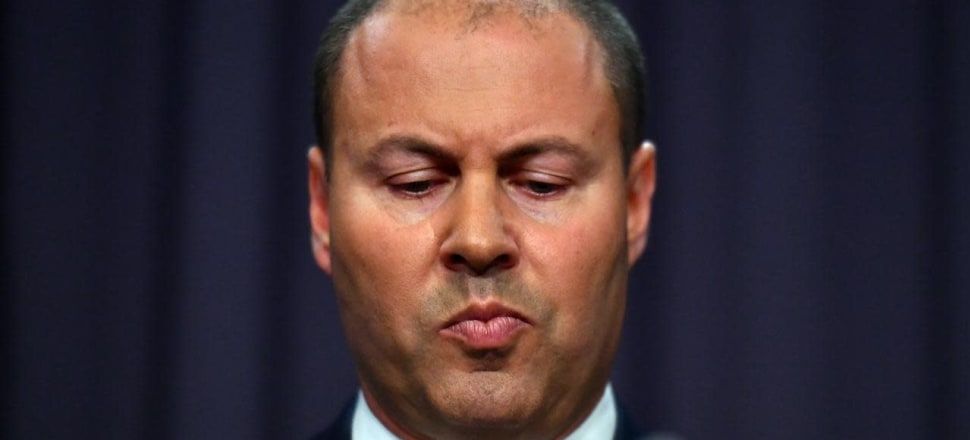
Treasurer Josh Frydenberg reveals biggest ‘eye-watering’ budget deficit since World War II
Treasurer Josh Frydenberg has revealed the budget will be in the red by an ‘eye watering’ $85.8 billion in 2019/20 and $184.5 billion in 2020/21.
By 30 June next year, Australia will be in $851.9 billion worth of debt.
This marks the biggest deficit since World War II because of drastic spending to mitigate the damage from the coronavirus pandemic.
Mr Frydenberg also said that he believes the unemployment rate was expected to reach 9.25 per cent in December.
In his speech this morning, Mr Frydenberg said Gross Domestic Product would contract by 0.25 per cent in 2019/20 and shrink 2.5 per cent in 2020/21.
The economic downturn has cost the budget $32.4 billion in 2019/20 and $72.2 billion in 2020/21. Tax receipts are down $31.7 billion in 2019/20 and $63.9 billion in 2020/21.
“In the last 40 years the global economy has contracted only once. That was when it contracted by just 0.1 per cent in 2009 during the GFC,” Mr Frydenberg said during a press conference on Thursday morning.
“The OECD is now expecting that the global economy will contract by 6 per cent this year. The IMF is expecting 157 economies to contract this year with unprecedented falls in many.”
“Here in Australia the Morrison government has deployed $289 billion in fiscal and balance sheet support, the equivalent of 14.6 per cent of GDP,” he said.
“Our economic strength going into this crisis has given us the … firepower to respond during this crisis.”
The full extent of the deficit for 2020/21 is unlikely to be known until the October budget with the government considering extra spending measures, including lifting the base rate of JobSeeker, bringing forward already legislated tax cuts and new infrastructure projects.
Mr Frydenberg also said that the country’s record debt burden, which was double to the $54.5 billion in 2009/10, the fiscal year after the GFC, will be ‘manageable’ but warns that the climb will be tough to get through the health and economic crisis.
The country will be in $851.9 billion worth of debt at 30 June next year, but low interest rates have kept the debt servicing costs down.
Mr Frydenber said one of the major concerns facing the government is job creation. Between March and May this year, 870,000 jobs were lost and around one million workers saw their hours cut.
“These are mums and dads, sons and daughters, friends and colleagues and at 7.4 per cent in June the official unemployment rate is expected to peak at around 9.25 per cent in the December quarter this year,” Mr Frydenberg said.
“Without the government’s economic support measures unemployment would’ve peaked at 5 percentage points higher. The government’s economic measures have saved 700,000 jobs,” he said, referring to schemes like wage subsidy program JobKeeper.




















